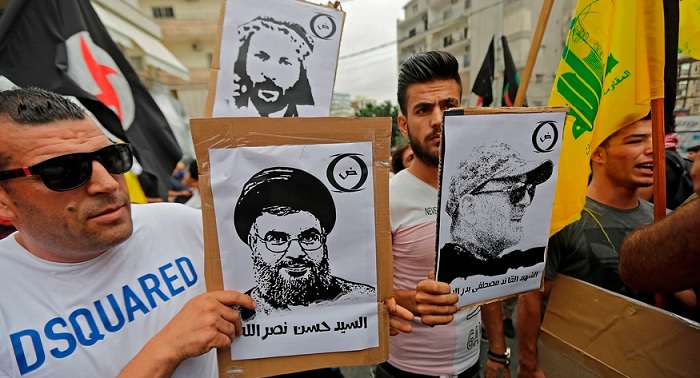
A Lebanese man accused of laundering drug money for the militant group Hezbollah has been extradited from Cyprus to the United States.
Ghassan Diab, 37, arrived in Miami last week to face charges dating back to 2016 in the U.S. state of Florida, the U.S. Department of Justice said in a statement Saturday.
Diab has been charged with two counts of money laundering over $100,000, two counts of conspiracy to launder over $100,000, two counts of unlicensed transmission of currency over $100,000, and two counts of unlawful use of a two-way communications device to further the commission of money laundering, all of which are felonies under Florida law, according to a statement released by the department.
In 2016, a state attorney in Florida identified Diab as an alleged Hezbollah associate, announcing charges against him as a part of an operation on money laundering by the U.S. Drug Enforcement Administration (DEA) in Miami, according to the Justice Department.
Diab was arrested in Cyprus in March 2019 upon his arrival from Beirut, Lebanon.
U.S. law enforcement agencies in recent months have stepped up crackdowns on the Iranian-backed group and its financial networks.
In April, the U.S. Department of State issued a bounty of up to $10 million for information on Muhammad Kawtharani, a senior Hezbollah military commander, as part of U.S. efforts to disrupt the finances of the Shiite group.
The U.S. designated Hezbollah as a terrorist organization in 1997.
Significant move
Emanuele Ottolenghi, a senior fellow at the Foundation for Defense of Democracies (FDD) in Washington, says such extraditions of Hezbollah associates are significant steps to damage the group’s operations abroad.
Diab was “part of a very large drug trafficking and laundering network that spans several continents,” he said.
“These [U.S.] actions hit one specific node of the network,” Ottolenghi told VOA. “It may not take it all down, but it exposes people, disrupts operations and sucks resources out of those operations.”
Ottolenghi added that every time a Hezbollah operative is arrested and prosecuted, the group “loses their resources, and their assets get exposed.”
2016 case
The case against Diab in Florida reportedly traces back to an international drug-smuggling hub in Colombia where his brother-in-law, Mohammad Ahmad Ammar, ran an operation to launder drug money.
Ammar, 35, was extradited to the U.S. in 2016. He was later convicted in Miami of one count of money laundering in excess of $100,000 and one count of conspiracy to commit laundering in excess of $100,000.
Hassan Mohsen Mansour, a third Hezbollah operative involved in the scheme, was arrested in Paris in 2016.
Global network
For years, Hezbollah has been carrying out illicit activities around the world to fund its military operations, experts and U.S. officials say.
The militant group has been particularly active in drug trafficking, money laundering and other illegal activities in South America, North America, Europe and the Middle East.
Experts say Hezbollah has been effective in advancing its agenda in various fields, exploiting loopholes wherever it has been able to do so.
“The global network of Hezbollah from Latin America through Middle East and Europe, plus their enormous and deep-rooted investments in every business aspect from construction to gambling, has turned them a reliable partner for drug cartels and other organized groups to reach them for money laundering and other revenues generated from illicit trades and activities,” Hugo Antonio Acha, a counterterrorism expert based in Miami, told VOA.
In some parts of Europe, experts argue, the Lebanese groups and their Iranian benefactors have developed a vast network that provides support to Hezbollah in terms of logistical, financial and operational capabilities.
Acha said that Hezbollah militants “have hands in governments, banking systems and officials from a country like Venezuela that has been completely hijacked by a criminal organization, to countries that operate under the umbrella of shell companies, like Romania, and own banks and accounts in the Isle of Cayman, to businesses that were being developed in Qatar and construction complexes in the United Arab Emirates.”
In May, German authorities banned the political activities of Hezbollah on German soil, a move experts believe could be significant to cutting off support for the group’s activities around the world.
The European Union considers Hezbollah’s military wing a terrorist organization, while allowing its political wing to operate in the bloc’s countries. The Netherlands and Germany are the only EU members that recognize Hezbollah in its entirety as a terrorist organization. The U.K. also dropped the distinction last year.
 Eurasia Press & News
Eurasia Press & News



